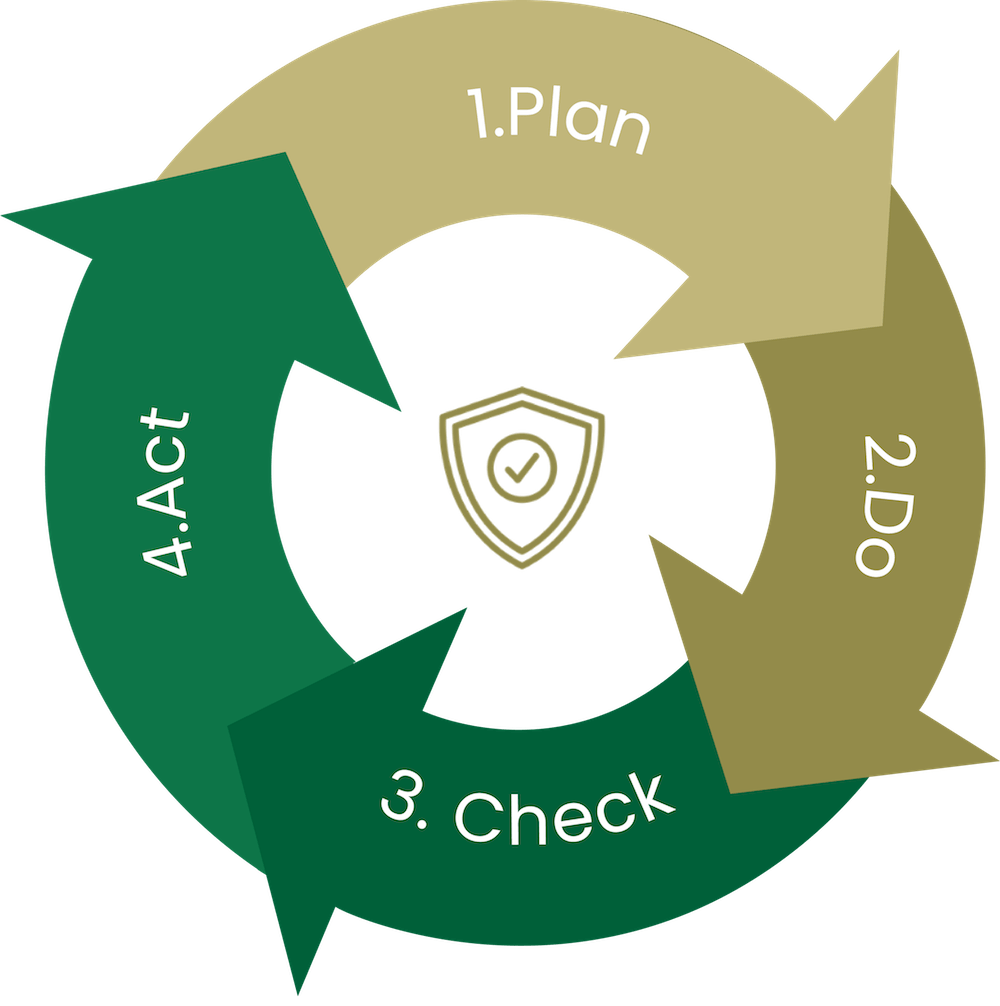ISO 22301
ISO 22301 ?
ISO/IEC 22301:2019, or “When all goes wrong”, is the first international standard for business continuity management. It was developed to help organisations minimise the risks associated with a crisis situation. One of the closest situations we experienced was of course the Covid-19 crisis, which made our premises unavailable.
ISO/IEC 22301:2019 defines the organisational and technical requirements of a Business Continuity Management System (BCMS), in terms of security and resilience. These are the activities of emergency planning (prolonged unavailability of services, fire, flood, etc.) and disaster recovery.
This standard is intended to apply to any organization, in whole or in part, regardless of its type, size or nature.
- Operational planning and control,
- Analysis of the impacts on the business and risk assessment,
- Business Continuity Strategy,
- Establishment and implementation of business continuity procedures and
- Exercises and tests
Why your organisation needs ISO/IEC 22301:2019 certification?
- Establish clear roles, responsibilities and delegations of responsibility
- Identify potential threats to the organisation and the impacts of these threats on business operations
- Continuously improve recovery time objective (RTO)
- Reduce the costs that disruptive events can generate
- Safeguard the interests of its key stakeholders, reputation and brand
- Gain international recognition
How to ensure this "continuous improvement"?
The foundation of continuous improvement, the PDCA (Plan – Do – Check – Act) is a widely used method for improving an organization’s performance in several areas (HR, Marketing, Logistics, etc.). It is also known as a virtuous circle. Concretely, this method breaks down as follows:
- Plan: analysis of the situation, problem or issue at hand, search for and selection of solutions
- Do: implementation of the selected solution
- Check: measurement and evaluation of outcomes
- Act: implementation of the solution after any adjustments to the pilot solution

